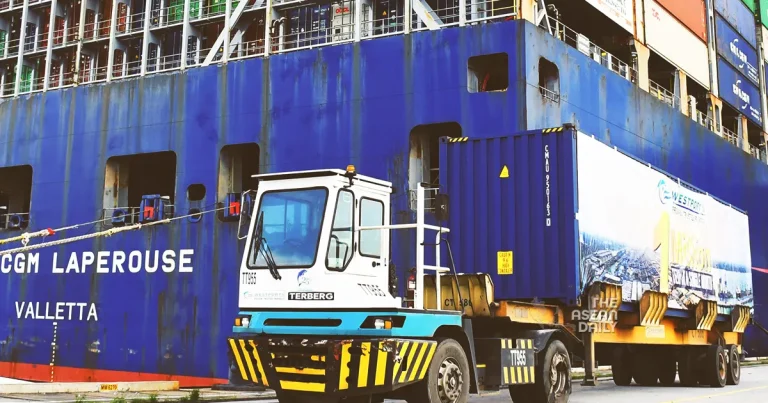13-2-2024 (KUALA LUMPUR) Malaysia’s largest port operator, Westports Holdings Bhd, remains unaffected by Thailand’s land bridge project, according to the executive chairman, Ruben Emir Gnanalingam. The company is currently exploring the possibility of external strategic investors to finance its ambitious expansion plan worth 39.6 billion ringgit (US$8.3 billion), with the aim of nearly doubling its capacity in the coming decades.
Anticipating that traffic volumes will surpass the capacity of the Malacca Strait by 2030, Thailand has proposed a 1-trillion-baht, 90-kilometer land bridge project to bypass the congested shipping lane. The project aims to connect seaports in Chumphon province in the Gulf of Thailand and Ranong province on the Andaman coast, reducing travel time by four days.
In an interview with Bloomberg, Ruben Emir Gnanalingam expressed his lack of concern about the land bridge project at this time, as his customers have not seriously considered it as a viable alternative. He emphasized that Westports remains focused on its expansion plans.
Regarding the expansion, Ruben stated that the company is open to external strategic investors who can bring value to the table. He also mentioned the consideration of a dividend reinvestment plan and borrowing to support the development of the Klang facility. Westports, the second-largest port in Southeast Asia, aims to increase its capacity to 27 million twenty-foot equivalent units (TEUs) from the current 14 million by 2082.
The expansion project, which will commence with the operation of the first of eight new container terminals in 2027, mirrors the ambitious plans of neighboring Singapore, where Tuas Port is set to become the world’s largest automated terminal by 2040, with an estimated cost of S$20 billion ($15 billion).
Acquisition of assets is also a part of Westports’ growth strategy. Ruben mentioned that the company is exploring opportunities to acquire other ports in Southeast Asia, but it will not overpay for assets. He emphasized that their goal is to achieve decent returns on investment rather than simply expanding their presence.
Sustainability is a significant focus for Westports. The maritime industry is facing increasing scrutiny due to its growing greenhouse gas emissions, which have risen by 20% over the past decade, accounting for approximately 3% of the world’s total emissions. Shipping companies are accelerating efforts to adopt greener practices and transition to net-zero emissions by 2050. However, Westports’ efforts to reduce its carbon footprint using electric vehicles (EVs) have yielded mixed results. Due to the region’s reliance on coal for electricity, the EV trucks tested by the company produced more emissions than diesel vehicles under certain conditions. As a result, Westports has decided to slow down its adoption of EVs and reevaluate its approach to emissions reduction.
Westports’ shares have experienced a surge of over 20% since hitting a recent low in October, outperforming the Kuala Lumpur benchmark, which has seen a gain of approximately 5%. Two-thirds of analysts covering the company have a ‘buy’ recommendation.




